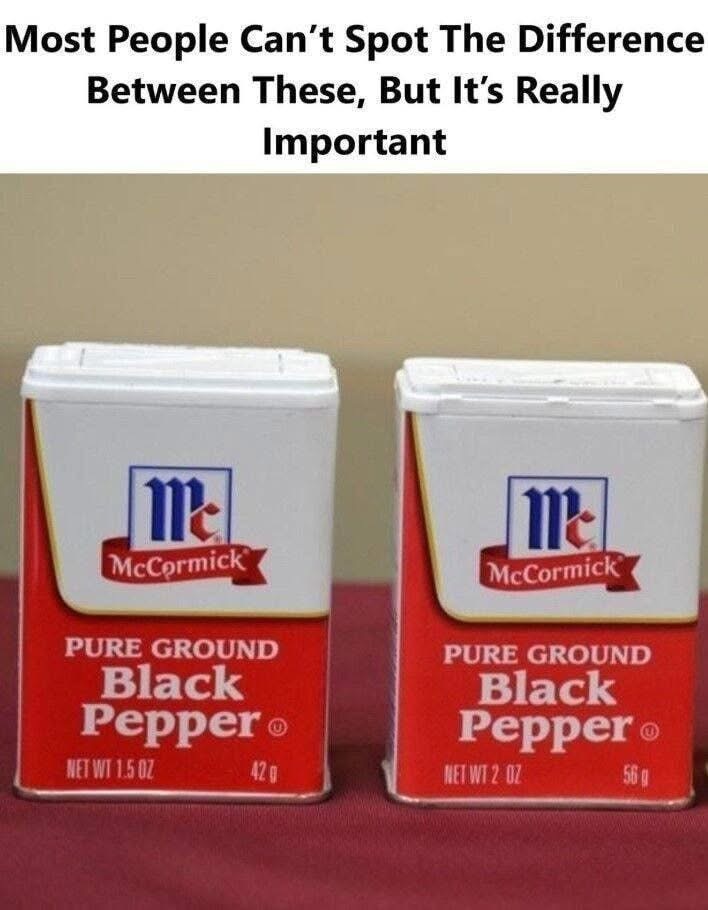Introduction
Sometimes, the smallest details can have the biggest impact—especially when it comes to everyday products. A recent dispute between spice giant McCormick & Co. and smaller competitor Watkins Inc. highlights how subtle changes in packaging can affect consumer perception and trust. At the heart of the debate is something simple yet important: the size of a pepper tin. While both companies sell similar amounts of pepper, differences in container design and transparency have sparked legal battles and raised questions about honesty in marketing. This case shows that even seemingly minor product details can influence purchasing decisions and shape brand reputation.

In a world filled with endless choices, it’s easy to overlook subtle details—especially when it comes to everyday products. A recent dispute between spice giant McCormick & Co. and its smaller competitor Watkins Inc. shows just how important those details can be. At the center of the conflict is something most of us take for granted: the size of a pepper tin.
McCormick vs. Watkins: The Packaging Controversy
McCormick has been accused of quietly reducing the amount of pepper in its tins by about 25%, dropping from 8 ounces to roughly 6 ounces. Watkins argues that McCormick’s opaque containers make it appear as though consumers are getting more than they actually are. By contrast, Watkins sells the same amount of pepper in smaller, transparent containers, making the contents clear and honest at first glance.
Watkins claims McCormick’s approach is misleading and in violation of consumer protection laws. McCormick, on the other hand, insists that the actual weight is clearly labeled on every tin and that customers bear the responsibility of checking before purchasing.
How Consumers Are Affected
The disagreement has spilled into the courtroom. Watkins has filed a lawsuit, and frustrated McCormick customers have launched a class-action case, claiming they were misled into thinking they were buying more pepper for a better value. The legal battles now moving through federal courts highlight a much bigger issue: the way product packaging shapes consumer perception.
Many shoppers still believe McCormick offers more pepper at a lower price when placed side by side with Watkins. In reality, both containers hold the same amount, but appearances can be deceiving—and that illusion can directly affect purchasing decisions.
Why Trust Matters
This controversy is about more than just pepper; it’s about trust. When brands blur the line between clever marketing and misleading presentation, they risk eroding consumer confidence. For McCormick, the cost of reducing container size may turn out to be much higher than a few ounces of spice—it could damage a reputation built over decades.
The case serves as a reminder to consumers: always look beyond appearances, check labels carefully, and question whether a product is truly offering value. For companies, the lesson is clear as well—honesty and transparency are vital for long-term success. Even small details, like the size of a pepper tin, can make a big difference in shaping both trust and loyalty.




Leave a Comment